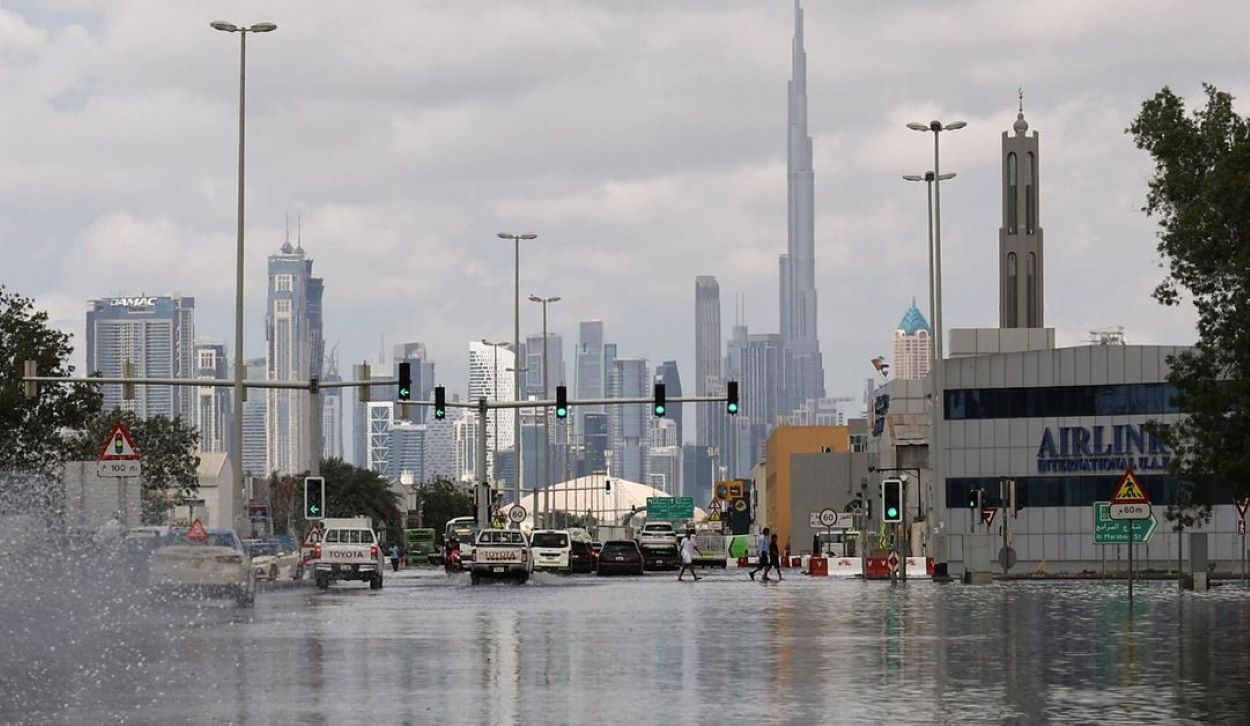The United Arab Emirates (UAE) is still reeling from a record-breaking storm that halted the country earlier this week.
Dubai’s international airport, a key travel hub, remains hampered after Tuesday’s flooding. The runway inundation led to widespread flight diversions, delays, and cancellations.
Emirates, the primary airline at this airport, postponed passenger check-in to 9 am (0500 GMT) Thursday, a nine-hour delay from the planned midnight start. Stranded passengers struggled to access food, as nearby roads were flooded and the airport limited entry to those with confirmed bookings.
This severe weather hit Oman on Sunday before impacting the UAE on Tuesday. It caused extensive road flooding and led to hours-long traffic jams. Homes were flooded, trapping residents in traffic, homes, and offices. Authorities have reported that the UAE experienced its heaviest rainfall in 75 years. The storm resulted in one death in the UAE and 20 in Oman.
Read: Widespread Flooding Hits Dubai and Oman, Disrupts Flights
Experts warn that climate change will increase temperatures and humidity, raising the Gulf region’s flooding risks. The UAE’s lack of sufficient drainage infrastructure complicates these challenges.
A UAE government agency confirmed that no cloud seeding occurred before the storm. Late Wednesday, President Sheikh Mohammed bin Zayed Al Nahyan directed an assessment of the damage and support for affected families.
The Pakistan embassy in the UAE established a helpline to assist Pakistani nationals affected by the weather. Ambassador Faisal Niaz Tirmizi instructed embassy staff to support the Pakistani community comprehensively.






